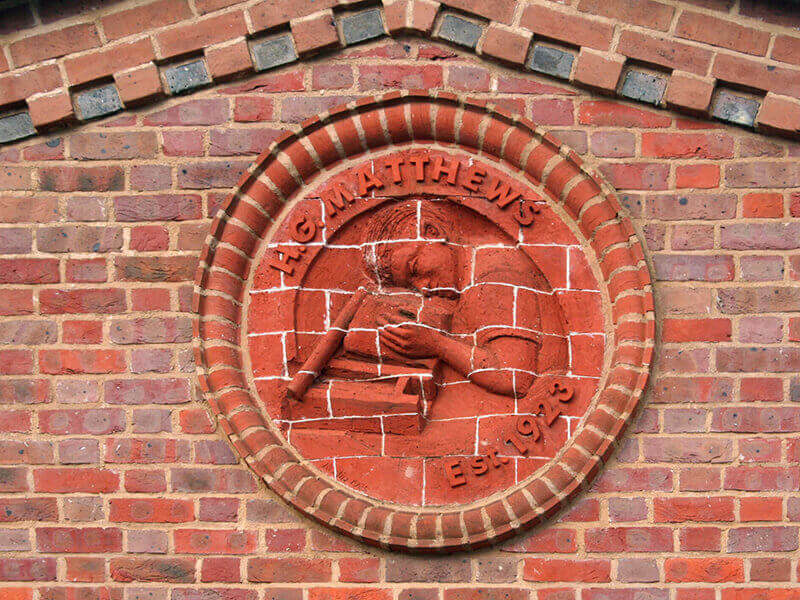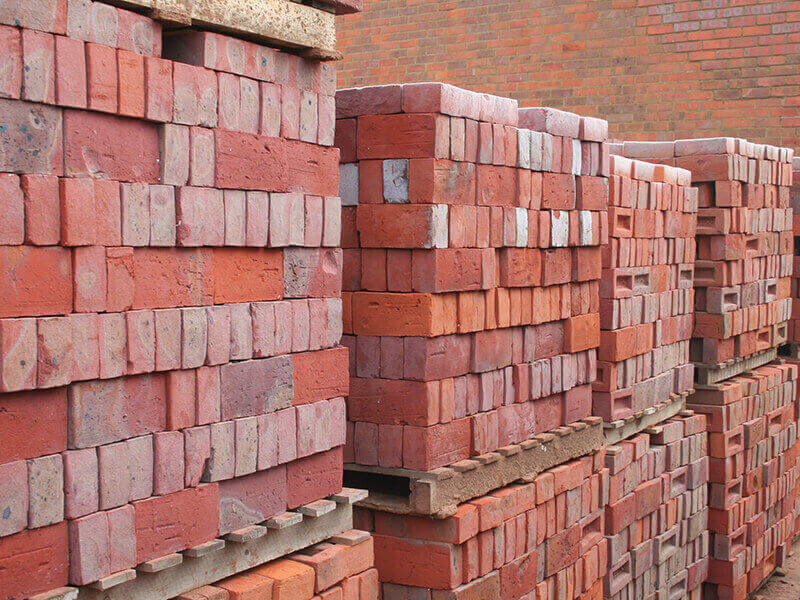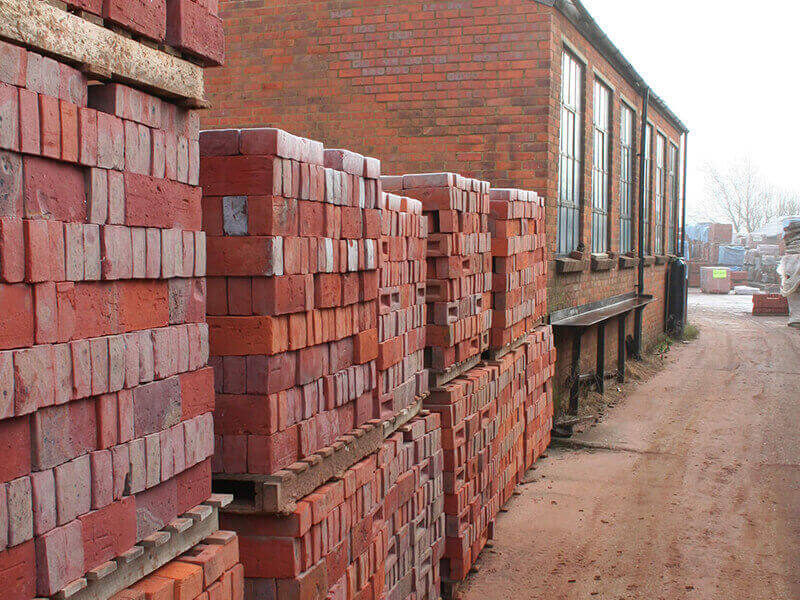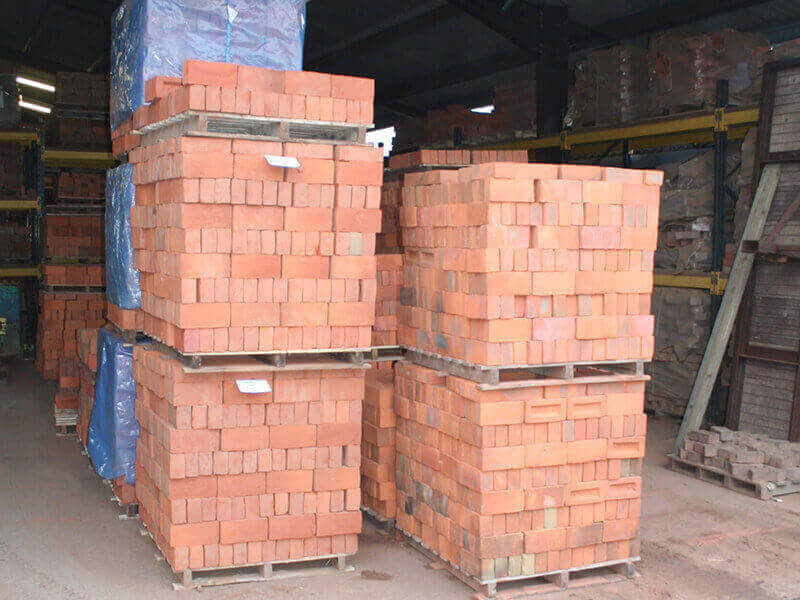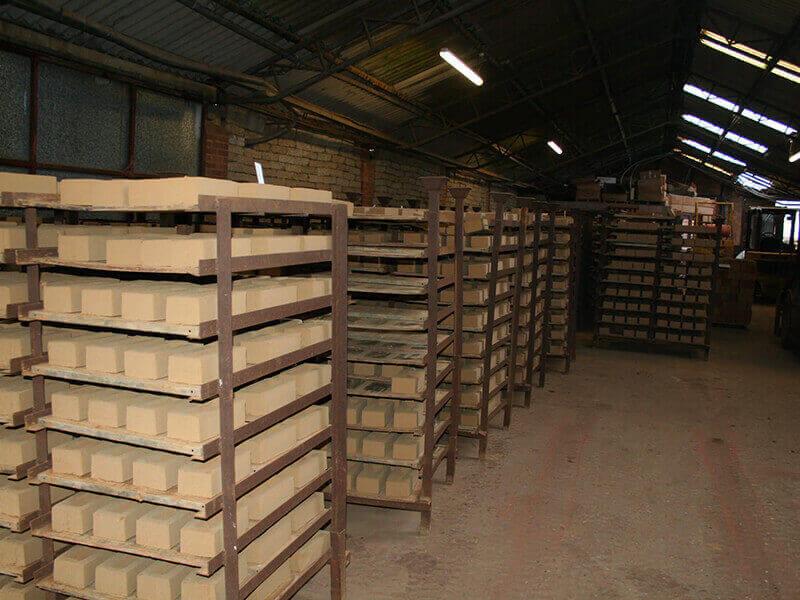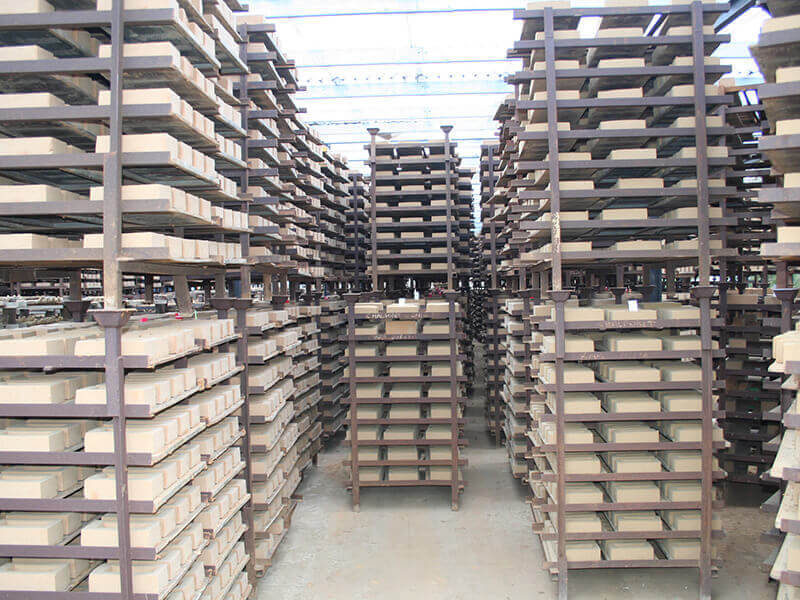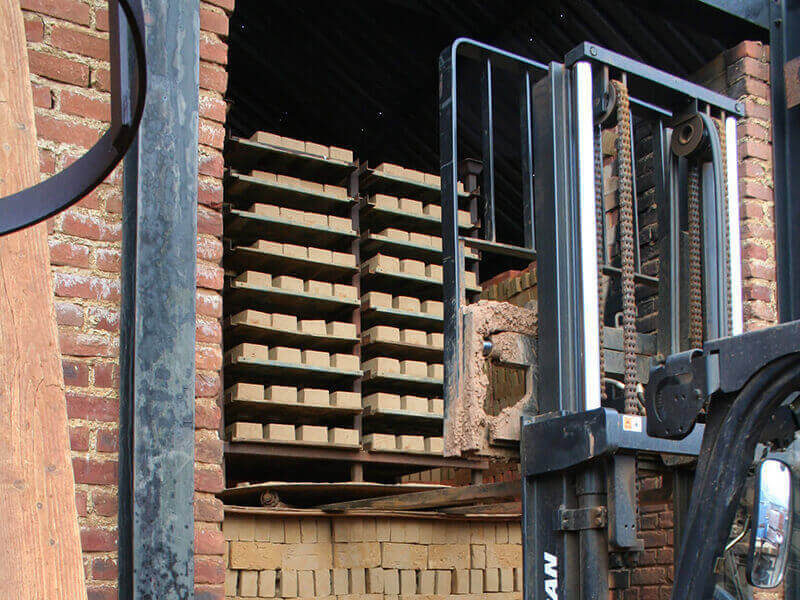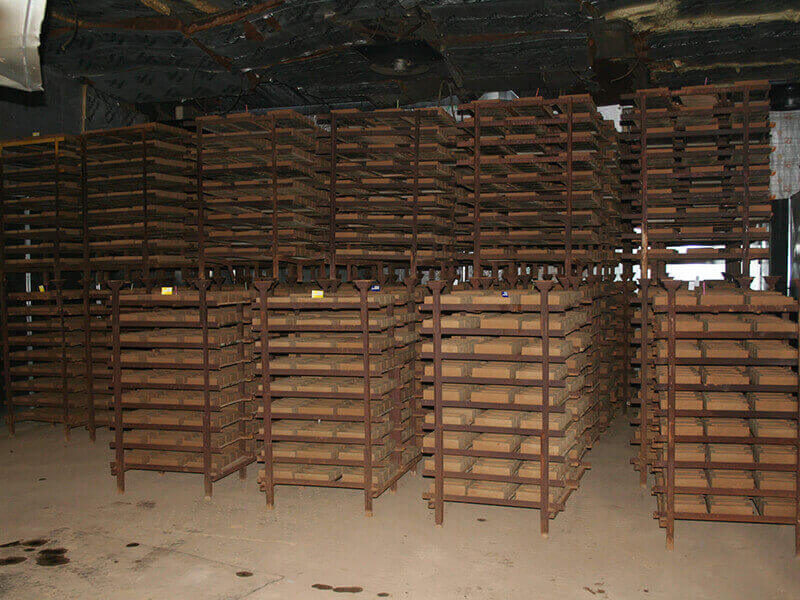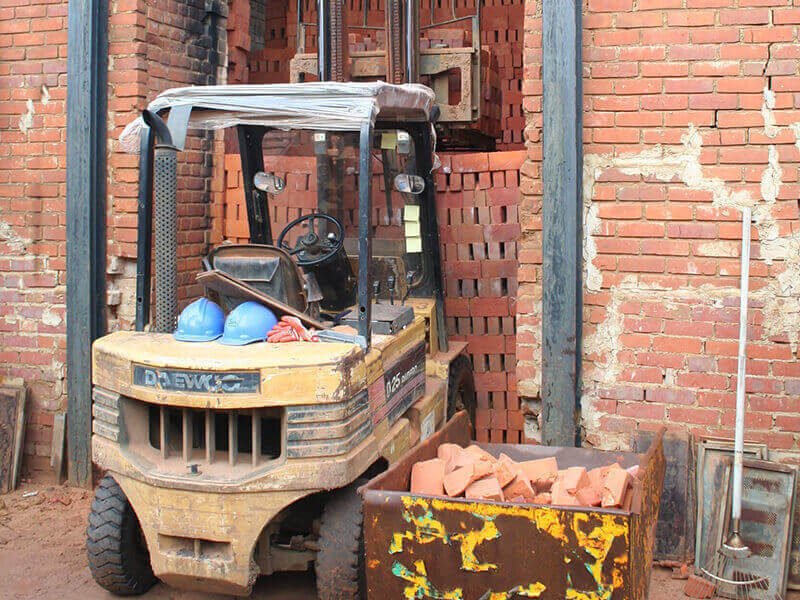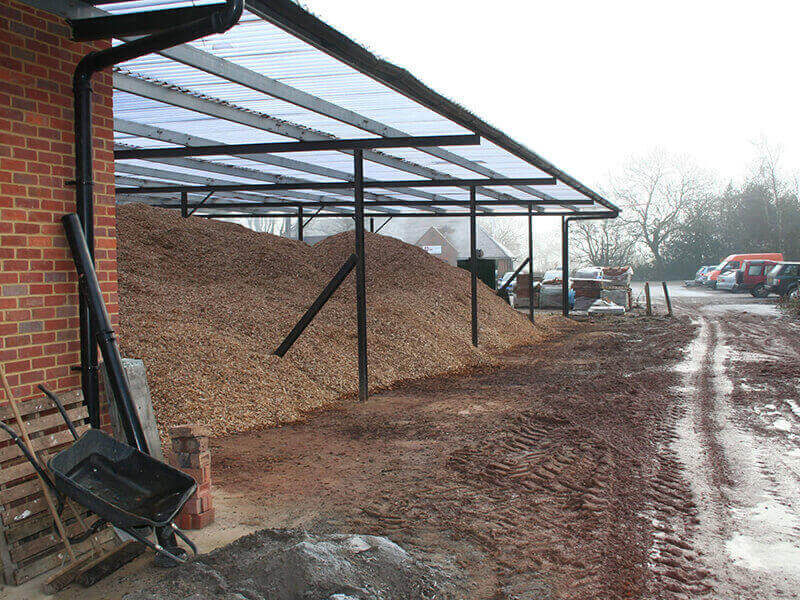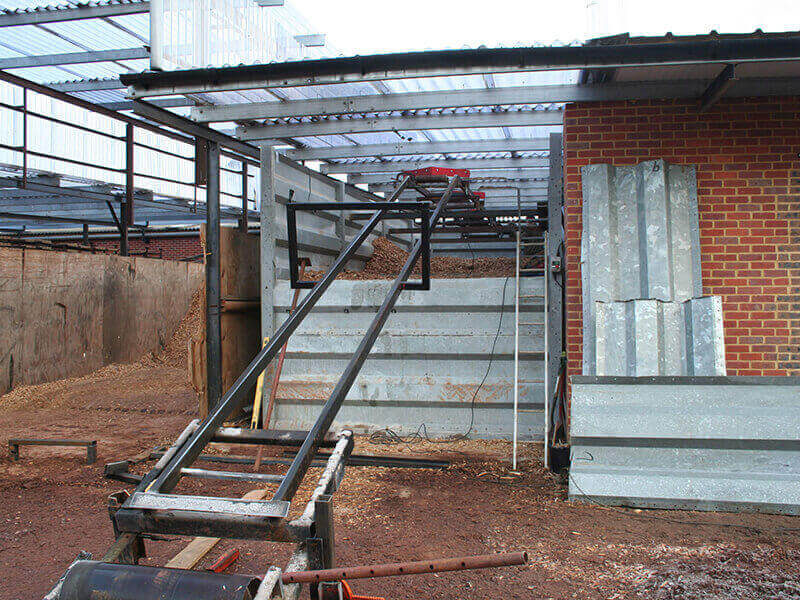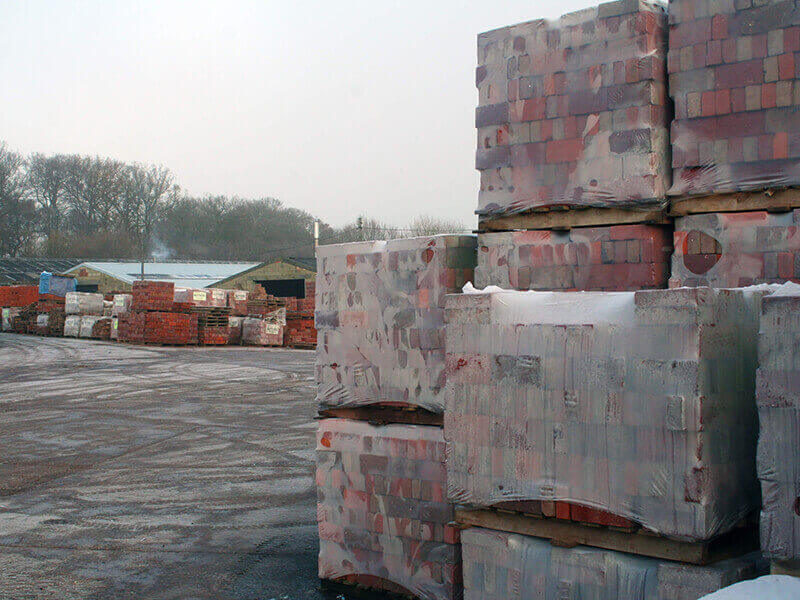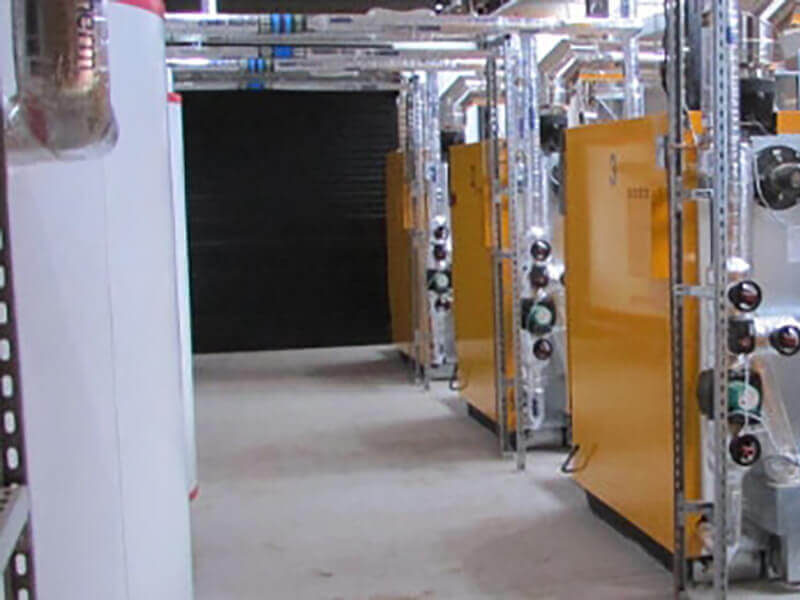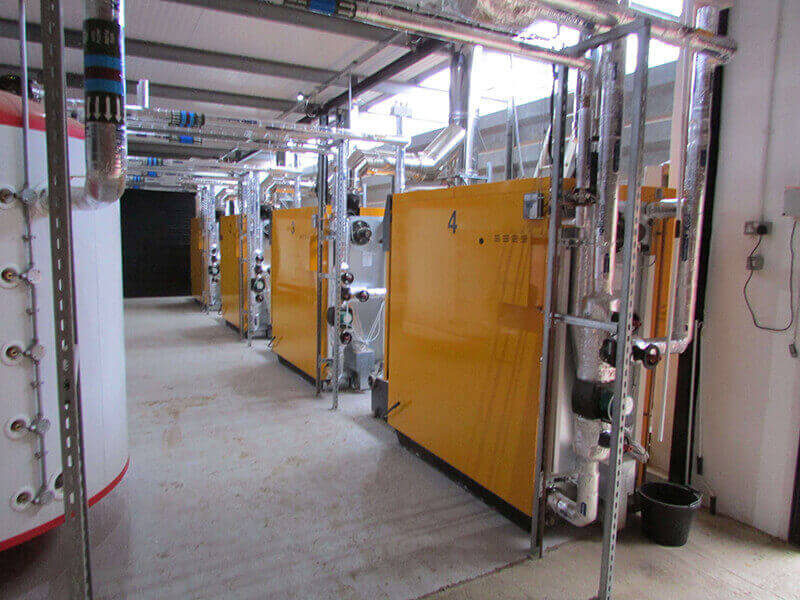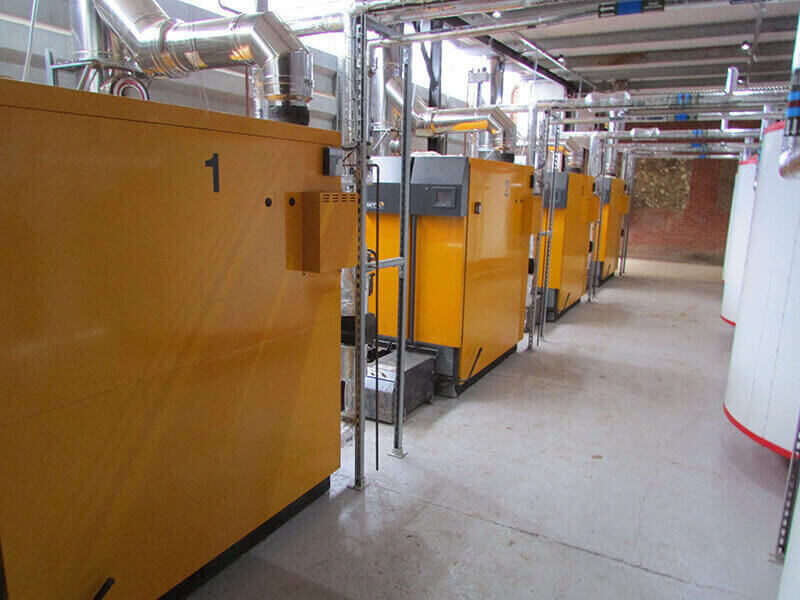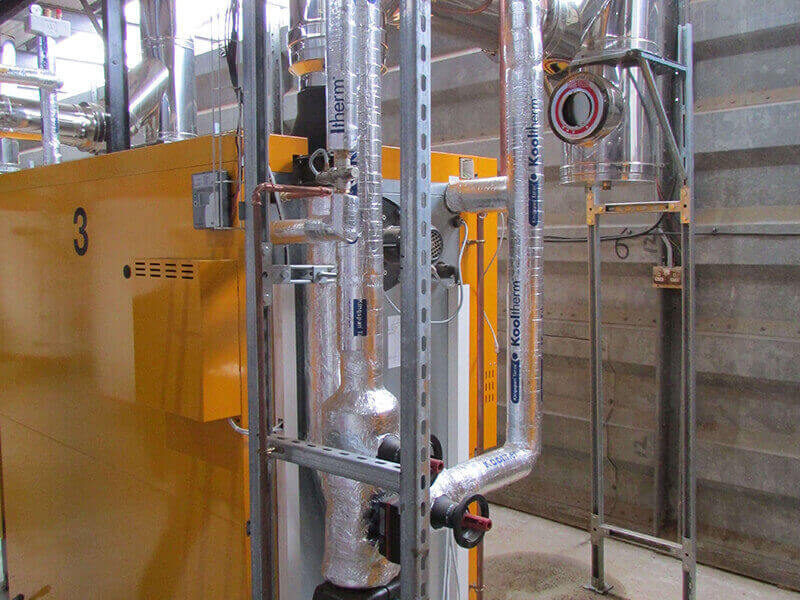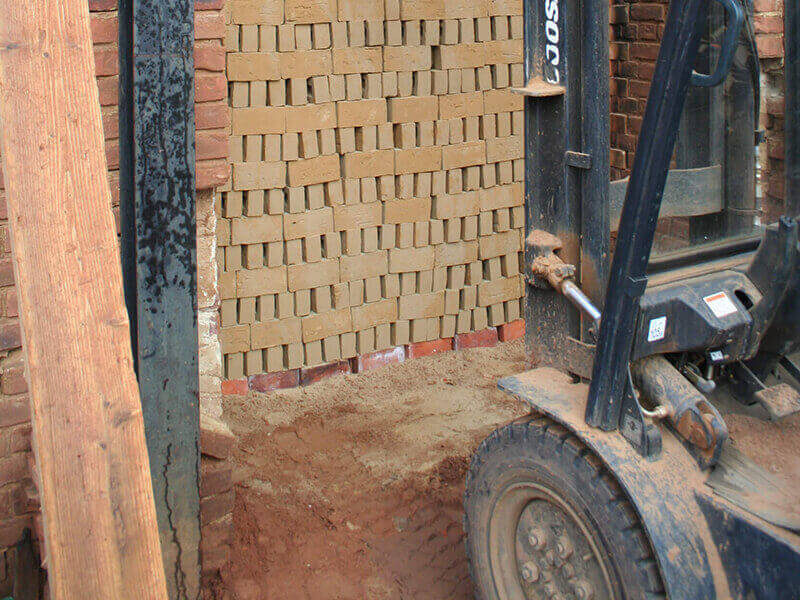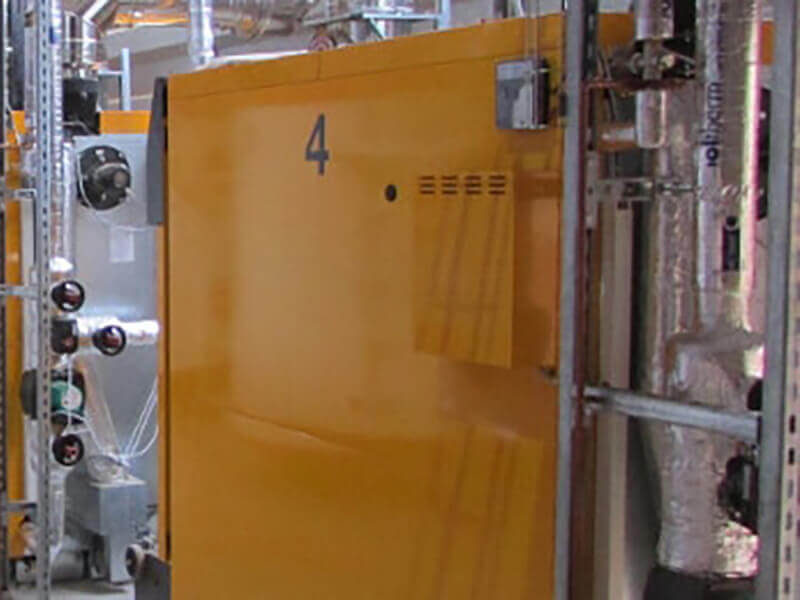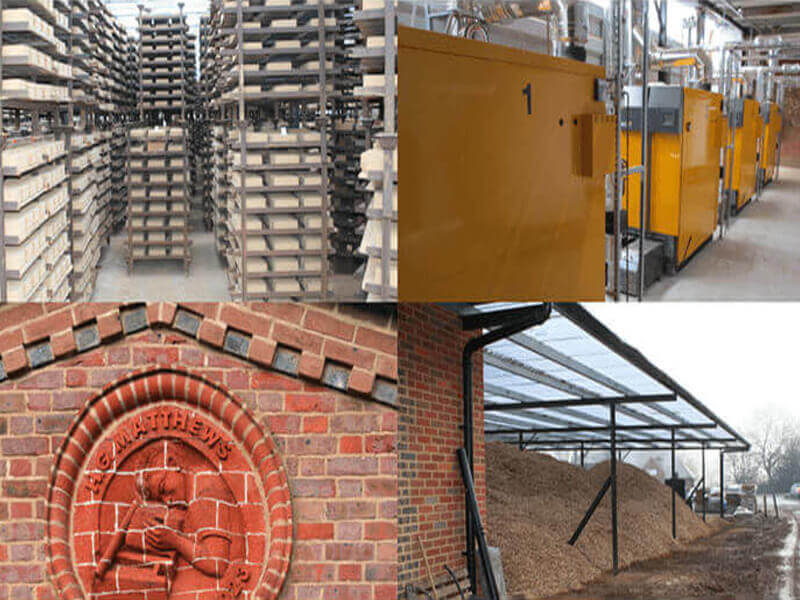4 x ETA 200kW Woodchip Boilers
HG Matthews is a traditional brick maker with strong environmental credentials. The initial project brief was to replace an ageing 600kW biomass wood chip boiler that was struggling to satisfy demand and was suffering from reliability problems.
The requirement was to bring four brick drying rooms up to around 50˚C in a controlled manner to allow the newly cast bricks to dry out prior to firing. When full, each room holds around 18,000 bricks and each brick needs to lose about 500g of water during the process. Analysis of the problem suggested that a 199kW boiler linked to a suitable fan assisted heater would deliver sufficient heat to achieve the task in four days without accelerating the process so much that the bricks cracked. Dunster’s suggestion of four independent installations also ensured that each installation would be eligible for the ‘small scale biomass’ RHI tariff thus greatly improving the financial attractiveness of the scheme. A single system was installed initially to prove the concept and once that had demonstrated success, the three additional systems were installed to the same design.
Fuel Supply and Chip Handling
The boilers initially burnt cheap wood chip produced locally from building waste. Whilst the boilers performed satisfactorily, a subsequent experiment demonstrated that the calorific value of the fuel was so much lower than wood chip produced from virgin wood that the reduced price was more than offset by the increased amount required to deliver the same amount of heat. All boilers have now switched to chip produced from bulk purchases of timber. These are all bought from sustainable sources, seasoned on-site and chipped by a contractor. When hoppers need to be filled, chip is transferred from the bulk store to a conveyor system using a tractor and bucket and the conveyor drops the chip into the required hopper.
System Design and Installation
Dunster designed the biomass system and plant room layout and worked with the heat exchanger and controls contractors to integrate all elements of the system. The client constructed the plant room and fuel hoppers, Dunster installed the boilers, accumulator tanks and associated pipework and fittings.
Benefits
In addition to an attractive return on investment of over 25%, drying times for bricks have been reduced by around 50%. This has led to a 70% increase in production capacity which in turn has enabled the business to fulfil more orders than previously possible.
The trial system was commissioned in August 2012 with the remaining three systems commissioned in November 2012.
Space heating for four brick drying rooms at a handmade brick factory (H.G.Matthews)
Four 199kW ETA Hack wood chip boilers, each with a 5,000-litre accumulator tank and 4m diameter agitator and auger fuel feed system.
The boilers are expected to use around 400 tonnes of wood chips per year to produce in excess of 1,000,000 kWh of heat.
Periodic chipping operations are conducted on-site with the chips being stored adjacent to the fuel hopper filling system. When required, the hoppers are filled using by conveyor.
The project was self-funded and is accredited as four separate Renewable Heat Incentive installations.
Income from the RHI substantially exceeds fuel costs resulting in a return on the investment in excess of 25%.
Our 90kw ETA Hack wood chip boiler suffered water damage in late 2014. Dunster Biomass Heating was the only company that could fix the issues without costing me new components. What we have learned is simple. Experience is key! When there is an unusual problem you need more than a guy with a manual – you need a company with the expertise, ability and willingness to solve the problem!

